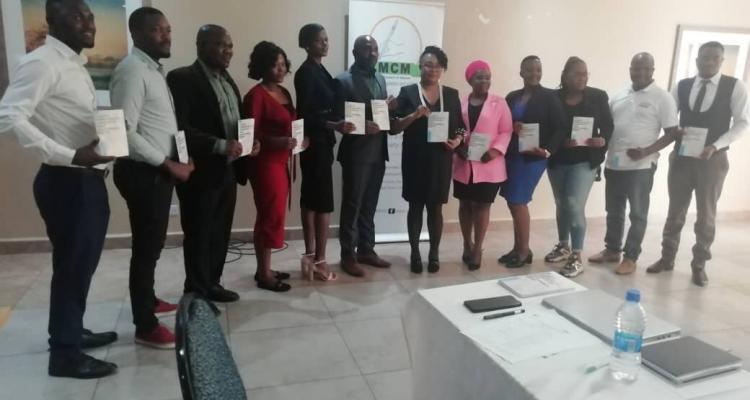
As one way of providing direction on how journalists should pursue information for investigative journalism and development reporting in Malawi, Media Council of Malawi has launched Access to Information (ATI) Handbook for Media Practitioners in Malawi.
Speaking after the launch at Lilongwe Hotel on Thursday, Executive Secretary for Malawi Human Rights Commission (MHRC) Habiba Osman said the handbook will guide Media Practitioners on steps to take when there is any hindrance in accessing information to take public officers accountable.
“The launch is important milestone in terms of access of information and investigation for journalists where it will simplify their professionalism”, she said.
Osman added that without accessing information, journalists can not effectively contribute to the development of this country.
She further said the handbook will help to boost knowledge among Media Practitioners in Malawi especially as the country goes towards general elections.
United States Embassy Public Affairs Officer Namita Biggins said for citizens to express themselves effectively and for the media to remain a reliable and trusted conduit of people’s thoughts, ideas and aspirations, there must be access to information.
She said citizens who can access public information are well informed and constructively express themselves on issues that affect them.
“United States believes that access to information is important for the practice of democracy because it promotes transparency and accountability which are some of the pillars of good governance,” said Biggins.
She added that the enactment of ATI law remains an important milestone for all the people of Malawi.
Biggins said for this reason, it is the hope of US Embassy that journalists in Malawi will take full advantage of this handbook to enhance their understanding of the ATI law and become emboldened to demand the information their need from public institutions.
She, however, express concern about inadequate funding Malawi Human Rights Commission (MHRC) which is tasked to implement the law receives from government.
“If Malawi is serious about shaping the future of rights and protecting its people from freedom of expression as enriched in the Malawi constitution, the ATI cannot be merely window dressing,” said Biggins.
She then promised to continue to work and partner with the media in Malawi through organisations like MCM and MISA Malawi to ensure that journalists and all citizens have access to information and that freedom of expression is promoted and protected.
Board Chairperson for Media Council of Malawi Wisdom Chimgwede said effective use of the handbook will make media practitioners to go beyond press and official statements.
He thanked US Embassy for support towards production of simplified access to information handbook as well as the launch.
After launch of the ATI Handbook, MCM also oriented journalists on Media Ethics and Information Governance which took place at Crossroads Hotel.














